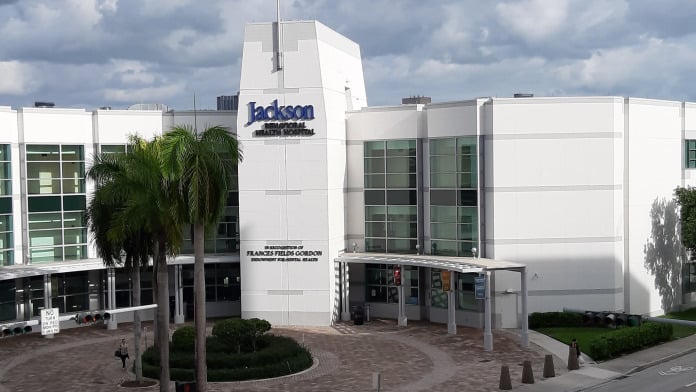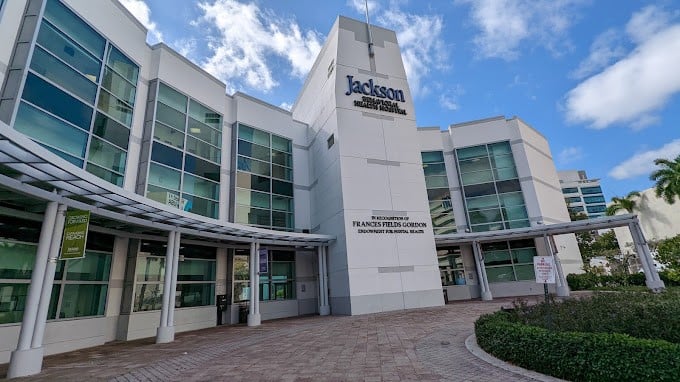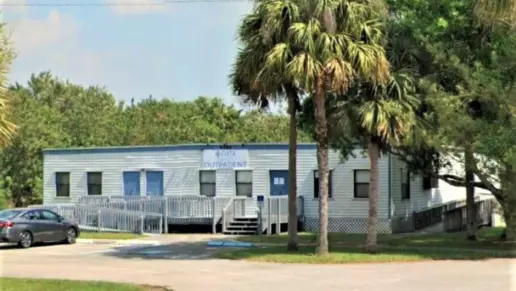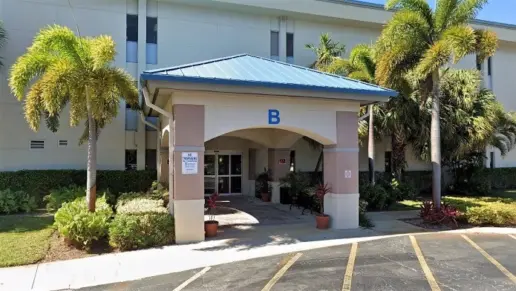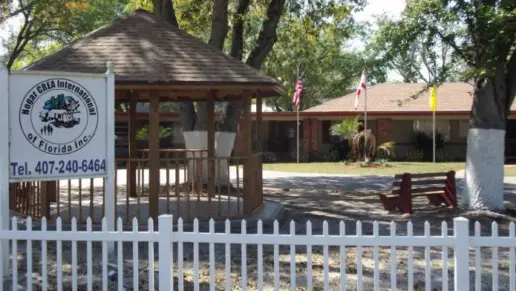About Jackson Behavioral Health Hospital
Jackson Behavioral Health Hospital offers mental health and addiction care in Miami, Florida. This facility has inpatient and outpatient treatment for adults. With proven therapeutic approaches and an empathetic team behind you, you can access the tools to achieve sustained recovery.
Both programs support you wherever you are in recovery. If you need a stable, supportive environment to live in and focus on sobriety, their inpatient program provides this. Their outpatient program offers a lower level of care if you live at home while in treatment. You’ll have access to trauma informed care, including therapy, family interventions, peer support, and discharge planning.
One notable feature that stands out to me is they have a specialized opioid program. People battling opioid addiction can benefit from medication assisted treatment coupled with therapy. They may prescribe medications, like Suboxone or Methadone, to help you manage withdrawal symptoms and cravings. They’ll complement treatment with behavioral interventions so you can work on the underlying challenges contributing to addiction and reach long term recovery.
 Payment Options
Payment Options
Private insurance
Self-pay options
Financial aid
Sliding scale payment assistance
Medicare
Medicaid
Medicare
Military Insurance
 Levels of Care
Levels of Care
 Outpatient
Outpatient
Outpatient Programs (OP) are for those seeking mental rehab or drug rehab, but who also stay at home every night. The main difference between outpatient treatment (OP) and intensive outpatient treatment (IOP) lies in the amount of hours the patient spends at the facility. Most of the time an outpatient program is designed for someone who has completed an inpatient stay and is looking to continue their growth in recovery. Outpatient is not meant to be the starting point, it is commonly referred to as aftercare.
 Inpatient
Inpatient
 Aftercare Support
Aftercare Support
 Intervention Services
Intervention Services
If a person with a substance use disorder continually denies their problem or refuses to get treatment, a drug intervention in Florida may be necessary. Intervention services can help mediate the intervention by providing an addiction expert. This professional can de-escalate situations and facilitate a healthier discussion between the individual and their loved ones. Specialists can also help families handle issues they don't know how to navigate on their own.
 Programs
Programs
Teen Program
 Adult Program
Adult Program
 Program For Men
Program For Men
 Program For Women
Program For Women
 Young Adult Program
Young Adult Program
Child Program
Seniors Program
 Hearing Impaired Program
Hearing Impaired Program
 HIV/AIDS Program
HIV/AIDS Program
 Treatment
Treatment
 Alcoholism
Alcoholism
The goal of treatment for alcoholism is abstinence. Those with poor social support, poor motivation, or psychiatric disorders tend to relapse within a few years of treatment. For these people, success is measured by longer periods of abstinence, reduced use of alcohol, better health, and improved social functioning. Recovery and Maintenance are usually based on 12 step programs and AA meetings.
 Drug Addiction
Drug Addiction
Drug rehab in Florida provides quality treatment to help individuals overcome dependency related to a wide range of addictive substances. Programs address both the physical and mental aspects of addiction in order to help you make a full recovery.
 Mental Health and Substance Abuse
Mental Health and Substance Abuse
A combined mental health and substance abuse rehab has the staff and resources available to handle individuals with both mental health and substance abuse issues. It can be challenging to determine where a specific symptom stems from (a mental health issue or an issue related to substance abuse), so mental health and substance abuse professionals are helpful in detangling symptoms and keeping treatment on track.
 Opioid Addiction
Opioid Addiction
Opioid rehabs specialize in supporting those recovering from opioid addiction. They treat those suffering from addiction to illegal opioids like heroin, as well as prescription drugs like oxycodone. These centers typically combine both physical as well as mental and emotional support to help stop addiction. Physical support often includes medical detox and subsequent medical support (including medication), and mental support includes in-depth therapy to address the underlying causes of addiction.
 Clinical Services
Clinical Services
 Cognitive Behavioral Therapy
Cognitive Behavioral Therapy
Therapists who apply cognitive behavioral therapy in Florida believe patient thoughts and behaviors are closely linked. They use this treatment method to help clients change their thought patterns so they can also change behaviors and break free from substance abuse.
 Dialectical Behavior Therapy
Dialectical Behavior Therapy
Dialectical Behavior Therapy (DBT) is a modified form of Cognitive Behavioral Therapy (CBT), a treatment designed to help people understand and ultimately affect the relationship between their thoughts, feelings, and behaviors. DBT is often used for individuals who struggle with self-harm behaviors, such as self-mutilation (cutting) and suicidal thoughts, urges, or attempts. It has been proven clinically effective for those who struggle with out-of-control emotions and mental health illnesses like Borderline Personality Disorder.
 Group Therapy
Group Therapy
Group therapy is any therapeutic work that happens in a group (not one-on-one). There are a number of different group therapy modalities, including support groups, experiential therapy, psycho-education, and more. Group therapy involves treatment as well as processing interaction between group members.
 Individual Therapy
Individual Therapy
In individual therapy, a patient meets one-on-one with a trained psychologist or counselor. Therapy is a pivotal part of effective substance abuse treatment, as it often covers root causes of addiction, including challenges faced by the patient in their social, family, and work/school life.
 Trauma Therapy
Trauma Therapy
Trauma therapy helps you work through the psychological impact that traumatic events have had on your life. Your therapist helps you identify the physical, emotional, and mental triggers and develop coping mechanisms. This helps rebuild a sense of safety and trust in yourself and others.
 Couples Therapy
Couples Therapy
During couples therapy in Florida, your therapist will take steps to get to know you, help you identify feelings, explore the past, develop solutions, and help you learn skills to manage relationship challenges. This process will allow you to work through conflict and strengthen your relationship.
 Family Therapy
Family Therapy
Research clearly demonstrates that recovery is far more successful and sustainable when loved ones like family members participate in rehab and substance abuse treatment. Genetic factors may be at play when it comes to drug and alcohol addiction, as well as mental health issues. Family dynamics often play a critical role in addiction triggers, and if properly educated, family members can be a strong source of support when it comes to rehabilitation.
